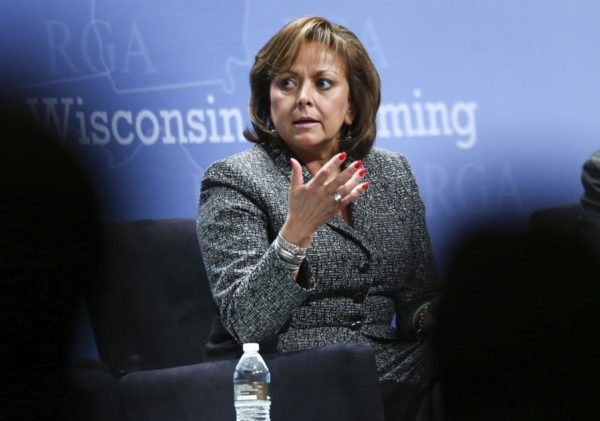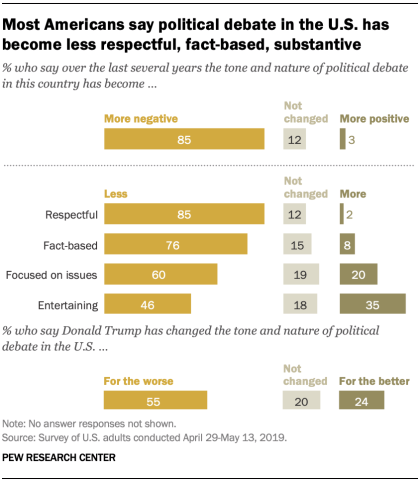Advertisement
The Turkish leader has repeatedly talked the president around to his view of the world.

WASHINGTON — Three times over the past year, President Trump has spoken with Turkey’s leader, Recep Tayyip Erdogan, and told Mr. Erdogan what he wanted to hear.
Last December, Mr. Trump stunned his own national security team by abruptly deciding to pull American troops out of Syria, clearing the way for Mr. Erdogan’s long-sought incursion into the country.
On Sunday, Mr. Trump spoke again to his Turkish counterpart, and then issued a similar declaration. And in between the calls, in June, Mr. Trump came away from a meeting with Mr. Erdogan echoing Turkish talking points blaming President Barack Obama for the country’s purchase of a Russian missile system.
The relationship between the two prideful and blustery men has had its rocky patches — and its threats. Mr. Trump, facing backlash from Republicans on Monday, warned on Twitter that he would “totally destroy and obliterate the Economy of Turkey” if Mr. Erdogan were to cross unspecified “limits” in Syria.
But American and Turkish officials alike describe an unusual partnership in which Mr. Erdogan has repeatedly guided Mr. Trump toward positions that pit him against his own national security advisers and Republicans allies. Analysts call it an oddity of their relationship that two naturally combative leaders, both prone to explosive public insults, seem to understand each other and believe they can sort things out by phone.
Mr. Erdogan will soon have the president’s ear again: Mr. Trump announced in a tweet on Tuesday that the Turkish leader would visit the White House on Nov. 13. He also continued on Tuesday to defend his decision, tweeting that “in no way have we abandoned the Kurds, who are special people and wonderful fighters.” Mr. Erdogan is one of several foreign strongmen who draw condemnation from human rights groups but with whom Mr. Trump appears to keen to do business. Both are man-of-the-people nationalists who have battled resistance from their respective security establishments.
While Mr. Trump rails against a bureaucratic “Deep State” seeking to overthrow him through investigations and impeachment, in 2016, Mr. Erdogan survived an actual military coup that turned bloody. The term “Deep State,” in fact, was first coined to describe the generals who long ruled Turkey from behind the scenes.
“They share a similar worldview, they dislike elites,” said Ozgur Unluhisarcikli, the director of the German Marshall Fund of the United States’ office in the Turkish capital, Ankara. “Trump would probably like to govern the way Erdogan does.”
On Sunday, Mr. Erdogan even seemed to play a version of the Deep State card with his counterpart. According to the readout of Sunday’s telephone call released by Turkey’s presidential palace, Mr. Erdogan “shared with President Trump his frustration over the U.S. military and security bureaucracy’s failure to implement” an agreement between the two countries governing security in northern Syria.
Mr. Trump responded by telling Mr. Erdogan, much as he had in December, that he would be removing American troops from the area where the Turkish leader hoped to do battle with Syrian Kurdish fighters who have been critical American allies against the Islamic State. Turkey considers those fighters a threat to its own borders and security.
Mr. Trump knows Turkey from his earlier life in real estate — he sold his brand name to the Trump Towers Istanbul in 2010 — but like presidents before him, he has struggled to devise a consistent policy toward the country.
Instead, he has focused on his personal relationship with Mr. Erdogan in conversations that people familiar with them describe as typically “fawning.” Mr. Trump usually begins by praising Mr. Erdogan, who is himself notorious for haranguing American presidents with grievances, according to those people.
“We have a great friendship as countries,” Mr. Trump said in an appearance with Mr. Erdogan that September. “I think we’re, right now, as close as we have ever been. And a lot of that has to do with the personal relationship.” The following July, he was spotted fist-bumping the Turkish leader at a NATO summit in Brussels.
That chumminess has unsettled both appointed and elected officials suspicious of Mr. Erdogan’s repressive policies, Islamist sympathies and deepening relationship with Russian President Vladimir Putin. Nearly everyone agrees, however, that simply shunning the head of a NATO-member nation at the pivot point between East and West is not practical.
The Trump-Erdogan friendship has already survived at least one major test, when relations flared over Mr. Erdogan’s continued detention of an American pastor, Andrew Brunson, who was jailed for nearly two years in a widespread crackdown after a failed coup in Turkey. When Mr. Brunson was not freed as he expected, Mr. Trump announced in a hostile tweet that he was doubling tariffs on Turkish steel and aluminum and watching the Turkish lira slide.
After Mr. Brunson was freed last October, Mr. Trump expressed public gratitude to Mr. Erdogan for “making this possible.”
To some former United States officials who have worked closely with Mr. Erdogan’s government, the relationship between Mr. Trump and Mr. Erdogan is an unsolved puzzle.
“It’s not really clear to me what Trump, or the United States, gets out of this,” said Phil Gordon, who served at the State Department and on the National Security Council under Mr. Obama.
“It’s consistent with other seemingly inexplicable Trump actions that are more in line with Russian interests than with ours,” added Mr. Gordon, a senior fellow at the Council on Foreign Relations.
Even before their collective anger over Mr. Trump’s Sunday announcement about Syria, Senate Republicans had been frustrated with the president’s resistance to placing sanctions on Turkey for its purchase of the advanced Russian S-400 missile system. Congressional leaders call it a clear violation of a 2017 law requiring economic penalties on countries that purchase Russian arms.
With pressure mounting in Washington on Mr. Trump to enact sanctions, he sat down in June with Mr. Erdogan at the Group of 20 summit in Osaka, Japan, where the Turkish leader argued that he had been forced to buy Russian arms because Mr. Obama had unreasonably blocked Turkish efforts to purchase the American-made Patriot missile.
Former Obama administration officials say the story is far more complicated, and that Mr. Erdogan had other options. But they said the Turkish leader had skilfully handed Mr. Trump, who revels in criticism of his predecessor, an ideal talking point as he deferred questions about whether he would impose sanctions.
“It’s a very tough situation that they’re in. And it’s a very tough situation that we’ve been placed in — the United States,” Mr. Trump said in mid-July, adding that “it’s not really fair.”
Mr. Trump did cancel the planned sale of more than 100 F-35 fighter jets to Turkey, whose operation in proximity to the Russian system NATO opposes on security grounds. But Secretary of State Mike Pompeo has said that the law “requires” sanctions.
“Trump is trying really hard to avoid slapping sanctions on Turkey, and that’s partly because he’s trying to not rupture his relationship with Erdogan,” said Soner Cagaptay, the director of the Turkish Research Program at the Washington Institute for Near East Policy.
A Pentagon spokesman on Tuesday challenged published reports that Mr. Trump’s decision to order American troops to move out of the area where Turkey plans an offensive surprised senior officials and said Mr. Trump had consulted Defense Secretary Mark T. Esper and Gen. Mark A. Milley, the new chairman of the Joint Chiefs of Staff, in the days before talking to Mr. Erdogan.
But Pentagon officials said they had discussed Mr. Erdogan’s threats to invade northern Syria, and there was no prior hint about Mr. Trump ordering American troops to step aside and leave their Syrian Kurdish allies vulnerable to attack. In fact, the officials said, both Mr. Esper and General Milley warned their Turkish counterparts last week that any such cross-border operation would seriously damage United States-Turkey relations.
One senior Trump administration official on Monday said that it was troubling to some officials that Mr. Erdogan was not concerned about angering Mr. Trump, and that he appeared to feel he had autonomy to move into Syria.
In all the furor over Mr. Trump’s announcement, there has been a studied silence from Mr. Erdogan.
Likewise, Mr. Trump’s recent tweets — even those threatening Turkey’s economy with destruction — have avoided calling out Mr. Erdogan by name.
Michael Crowley reported from Washington, and Carlotta Gall from Istanbul. Maggie Haberman contributed reporting from New York, and Eric Schmitt from Washington.
Michael Crowley is a White House correspondent in the Washington bureau, where he covers President Trump’s foreign policy. He joined The Times in June 2019 from Politico, where he had been the White House and national security editor, and previously senior foreign affairs correspondent. A Washington journalism veteran, Crowley has also worked for Time magazine, The New Republic and the Boston Globe.
Carlotta Gall is the Istanbul bureau chief, covering Turkey. She previously covered the aftershocks of the Arab Spring from Tunisia, reported from the Balkans during the war in Kosovo and Serbia, and covered Afghanistan and Pakistan. @carlottagall • Facebook
A version of this article appears in print on , Section A, Page 9 of the New York edition with the headline: In Unusual Partnership, Erdogan Keeps Finding a Sympathetic Ear in Trump. Order Reprints | Today’s Paper | Subscribe


